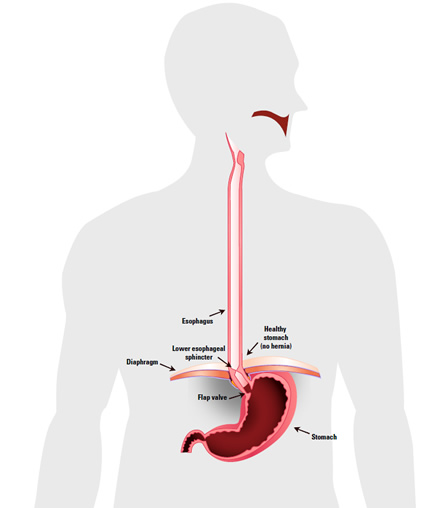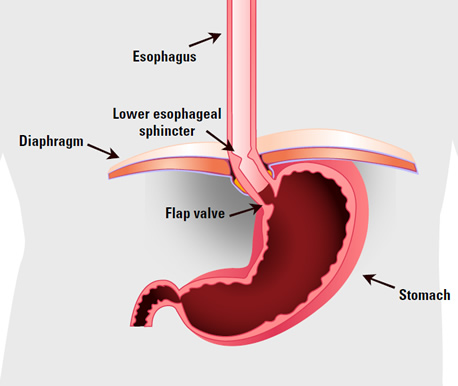Symptoms of Acid Reflux Disease
Burning and chest discomfort are well known symptoms of acid reflux or gastroesophageal reflux disease (GERD).But there are many more symptoms that you may not be aware of that may be caused by GERD.
 Acid reflux and heartburn are common occurrences that most people will experience at some point. However, for people with GERD, the symptoms are more frequent than occasional heartburn and, if left untreated, can lead to serous tissue damage in the upper portion of the digestive system and airway.
Acid reflux and heartburn are common occurrences that most people will experience at some point. However, for people with GERD, the symptoms are more frequent than occasional heartburn and, if left untreated, can lead to serous tissue damage in the upper portion of the digestive system and airway.
Understanding Acid Reflux Disease
Acid reflux disease is diagnosed as GERD when heartburn occurs at least two times per week for a prolonged period of time. Typically when GERD develops it is due to damage to the valve that separates the stomach from the esophagus. This valve, the lower esophageal sphincter (LES), can become relaxed or damaged often as a result of excess pressure on the stomach. When this happens, stomach acid and other digestive fluids will freely backwash into the esophagus, irritating the lining tissue.
The most common symptoms of GERD include:
- A burning sensation in the upper chest, neck and throat that is commonly called heartburn.
- Reflux or regurgitation of digestive fluids into the mouth.
- Difficulty swallowing or spasms in the chest.
When stomach acid refluxes into the esophagus, it is common for small amounts of that liquid to regurgitate into the mouth. This is called water brash, and it is often confused for minor amounts of vomit. This regurgitation can leave a displeasing taste in the mouth and over time can even lead to tooth decay.
The Symptoms of Acid Reflux Disease
Heartburn is a mild to severe burning sensation that is felt behind the breastbone in the chest. Heartburn should not be confused with chest pain, which could be indicative of heart disease. If you are unsure whether your pain is associated with heartburn or a more severe cardiac issue, seek medical attention immediately.
Acid reflux disease can often be recognized by the following associated symptoms:
- Pain when swallowing
- Hiccups
- Nausea and vomiting
- Asthma
- Chronic cough
- Sore throat
- Bloating
- Burping
- Hoarseness of the voice, especially in the morning
While heartburn and acid reflux can develop on isolated occasions in individuals who do not have GERD, the symptoms for those with acid reflux disease are typically much more severe and frequent. Eating certain foods and engaging in certain activities can exacerbate the symptoms of acid reflux disease, but for those with GERD the discomfort of heartburn will develop regardless of environmental choices.



